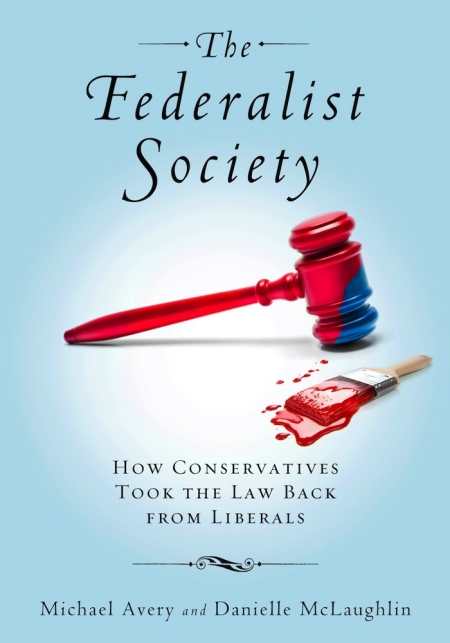It looks like you've stumbled upon a page meant to be read by our code instead of viewed directly. You're probably looking for this page.
The Federalist Society
How Conservatives Took the Law Back from Liberals
The Federalist Society for Law and Public Policy Studies was founded in the early 1980s by politically conservative law students who considered mainstream legal thought in America too liberal. Though it started as a student organization hosting symposia at law schools, the society has since grown into a multimillion-dollar organization with tens of thousands of members and hundreds of chapters around the country. The organization became so influential in conservative circles that every federal judge appointed by Presidents George H. W. Bush and George W. Bush came pre-approved by the Federalist Society, and most—including four current Supreme Court justices—were members.
In The Federalist Society: How Conservatives Took the Law Back from Liberals, Michael Avery and Danielle McLaughlin describe how the Federalist Society groomed an entire generation of lawyers and judges to advocate a specific worldview, and how that worldview has impacted several areas of law. From getting elected to Congress to writing massive numbers of amicus briefs, Federalist Society members have ensured that their views are present throughout the lawmaking process and established a new norm of conservative-driven legal decisions. The authors’ sober analysis looks at numerous cases and uses both anecdotal examples and data trends to show how Federalist Society members and supporters have consistently steered jurisprudence to the right.
The book focuses on some of the main areas of law in which society members have wielded significant influence, from cases involving eminent domain and the definition of private property to cases covering discrimination and civil rights. Avery and McLaughlin demonstrate how Federalist Society members chip away at laws with which they disagree, using incremental measures to create legal precedents on the way to challenging the laws themselves. Most interestingly, their anecdotes track the careers of important Federalist Society members, such as Supreme Court justices Samuel Alito and Antonin Scalia, as well as the society’s ongoing relationship with organizations like the Christian Coalition.
The judiciary is often the least-covered branch of the federal government, despite lifetime appointments that give judges decades of influence. Much of what The Federalist Society covers will be familiar to readers who closely follow law or politics, but even those readers will find value in its straightforward mix of history, case studies, and legal arguments. For others, it serves as an introduction to a long-term story that has slowly and quietly—but dramatically—changed the American legal system.
Reviewed by
Jeff Fleischer
Disclosure: This article is not an endorsement, but a review. The publisher of this book provided free copies of the book to have their book reviewed by a professional reviewer. No fee was paid by the publisher for this review. Foreword Reviews only recommends books that we love. Foreword Magazine, Inc. is disclosing this in accordance with the Federal Trade Commission’s 16 CFR, Part 255.
